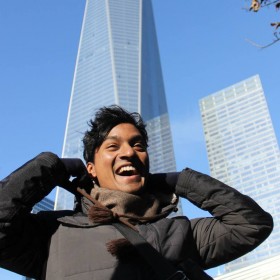
3:30 pm to 4:30 pm
Event Location: NSH 1305
Bio: Lerrel recently graduated as a Masters student from CMU RI where he was advised by Professor Abhinav Gupta. His research interests revolve around big data, computer vision and robotics. He is currently a PhD student at CMU RI.
Abstract: Current learning-based robot grasping approaches exploit human-labeled datasets for training the models. However, there are two problems with such a methodology: (a) since each object can be grasped in multiple ways, manually labeling grasp locations is not a trivial task; (b) human labeling is biased by semantics. In this paper, we take the leap of increasing the available training data to 40 times more than prior work, leading to a dataset size of 50K data points collected over 700 hours of robot grasping attempts. This allows us to train a Convolutional Neural Network (CNN) for the task of predicting grasp locations without severe overfitting. In our formulation, we recast the regression problem to an 18- way binary classification over image patches. We also present a multi-stage learning approach where a CNN trained in one stage is used to collect hard negatives in subsequent stages. Our experiments clearly show the benefit of using large-scale datasets (and multi-stage training) for the task of grasping. We also compare to several baselines and show state-of-the-art performance on generalization to unseen objects for grasping.
